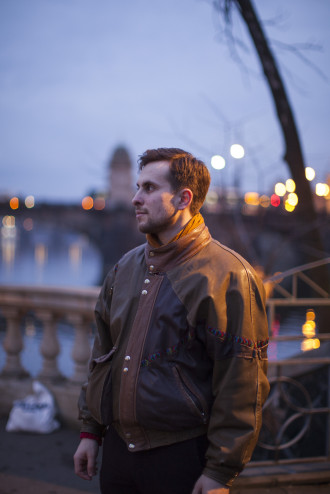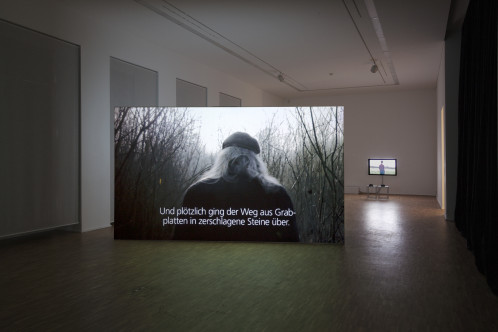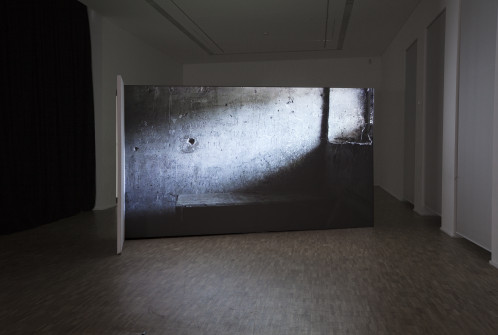Jakub Simcik
Emerging Artist of the week
Deeply grounded within his family history, the art of Jakub Simcik is the subject of this week’s interview of our Emerging Artist of the week series in collaboration with the art platform Unavailable.

Wertical : How do you describe your art to somebody who has never seen one of your work?
Jakub Simcik: My work is a hybrid form between documentation and fiction in video, photography and text. I am interested in how people shape their own identity through stories. It is a construction, of course. But it is also a way of creating change in one’s own life. It’s a bit similar to how therapy works, where you learn to change your life by changing the way you narrate it.
Another interest of mine is the transfer of identity to objects. In „Kitchen of Happiness“, also one of my earlier works, I retold the story of my mother’s emigration story through her obsession for kitchen machines and utensils: the dishwasher she had in Spain was much better than the one she has now, the fridge had so and so many compartments and was, of course, better than the one she has now. This was her way of talking about the painful decision to move from Spain back to Sweden after her husband lost his job. There is a longing and desire for her Heimat in that kitchen.
WE: Where did you study?
KS: The Academy of Fine Arts in Leipzig.
WE: What did University and your professors give to you?
KS: I studied with Prof. Tina Bara and Prof. Alba D’Urbano for seven years. One of the first things that struck me was how unprogrammatic and open minded they were. My professors also taught me a certain minimalist approach: to shed the superfluous, to aim for clarity of thought and expression and to avoid pretentiousness. The other students also had a great influence on me. There were many very talented people studying with me.
WE: What are you currently working on?
KS: An autobiographic video about my father called “Material für einen Prozess.” Many contradictory statements have been made about my father’s military service. He claimed to have patrolled the border area of Bratislava to Austria as a sniper. He also talked about being stationed in Azerbaijan and Angola as a military advisor, training Palestinian militias and being imprisoned in a forced labour camp in Czechoslovakia. The oddity is that he himself left Ostrava for Sweden in 1988. My father was both a refugee and a border guard.
I decided to visit „Archiv bezpečnostních složek“ in Prague to find out more about his stories. I spent a week looking through propaganda films and photographs of the border area without finding anything specific about my own family. On the last day of my research trip I received news that my father had passed away. This was a very strange coincidence.
We hadn’t been in touch for several years. Since I don’t and can’t know much about the real person, I try recapturing what could have been. According to Walter Benjamin there is a utopian potential hidden in the unrealised possibilities of the past. My starting point is the collection of photographs, documents and propaganda films from the archives and my own memories. This method also occupies itself with my father’s schizophrenia, as a result of which he could no longer discern the difference between real and fantasised experiences.
The title has two meanings: on one hand I am making a case against him. On the other hand it is a process to work through his death.
WE: What are your three artists to watch?
JS: Alex Lebus, Nicolás Rupcich and Dorothee Elmiger.
WE: What will your artist career look like in five years?
JS: Any period of longer than a week or two without art has usually thrown me into a state of restlessness. There is no alternative, I have to do art.

Zuspruch der Lebenden – Installation view

Zuspruch der Lebenden – Installation view
Jakub Simcik
Archive
- Dezember 2016 (1)
- Oktober 2016 (3)
- September 2016 (24)
- Juli 2016 (20)
- Juni 2016 (24)
- Mai 2016 (18)
- April 2016 (18)
- März 2016 (21)
- Februar 2016 (11)
- Januar 2016 (20)
- Dezember 2015 (20)
- November 2015 (37)
- Oktober 2015 (30)
- September 2015 (24)
- August 2015 (4)
- Juli 2015 (30)
- Juni 2015 (9)
- Mai 2015 (17)
- April 2015 (23)
- März 2015 (18)
- Januar 2015 (8)
- Dezember 2014 (1)
- November 2014 (3)
- Oktober 2014 (10)
- September 2014 (4)
- August 2014 (2)
- Juli 2014 (3)
- Juni 2014 (2)
- Mai 2014 (5)
- April 2014 (11)
- März 2014 (12)
- Februar 2014 (13)
- Januar 2014 (10)
- Dezember 2013 (5)
- November 2013 (13)
- Oktober 2013 (24)
- September 2013 (18)
- August 2013 (26)
- Juli 2013 (13)
- Juni 2013 (35)
- Mai 2013 (44)
- April 2013 (49)
- März 2013 (61)
- Februar 2013 (54)
- Januar 2013 (46)
- Dezember 2012 (50)
- November 2012 (58)
- Oktober 2012 (62)
- September 2012 (61)
- August 2012 (63)
- Juli 2012 (64)
- Juni 2012 (61)
- Mai 2012 (63)
- April 2012 (51)
- März 2012 (67)
- Februar 2012 (37)



